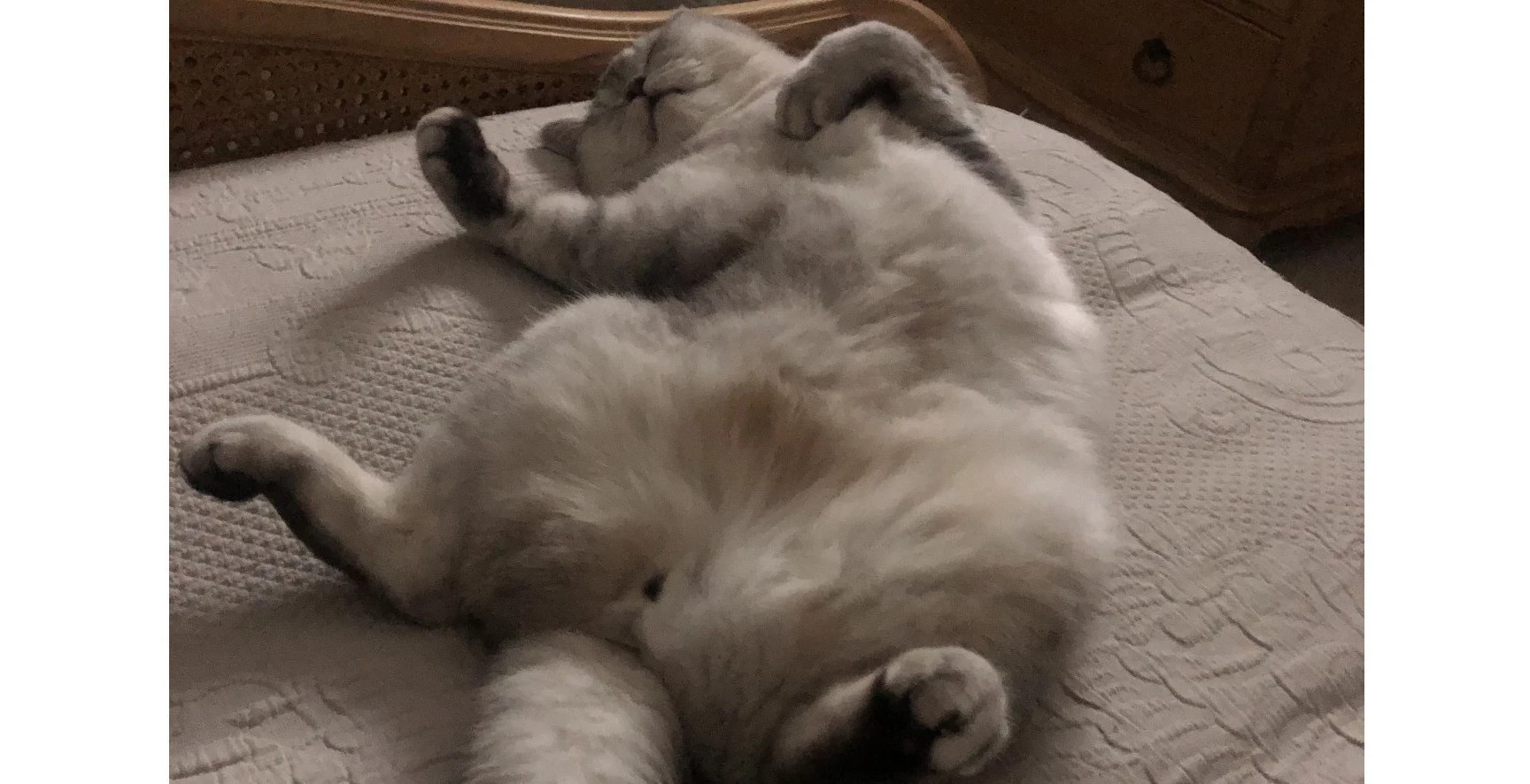Sleep tight, every night..
Firstly, please do accept my sincere apologies if the you find the above photo of Henry inappropriate or offensive, it was purely chosen to hopefully bring a smile to your face, and let's face it it's always good to get some smiles & chuckles into our day!
Anyway, moving swiftly on, you may think why an earth as a qualified Nutrition & Fitness Coach am I talking sleep?
Well, believe it or not, nutrition & our diet has a big part to play when it comes to improving our sleep. There is a proven link between a healthy, balanced nutritious diet and improved sleep.
By getting our diets into a healthier position and a better balance, those sleepless, interrupted nights should become less frequent. Whilst it may not be the complete fix especially for us ladies of a certain age, it certainly will help minus any furry friends of course!
And that's exactly just one of the benefits my clients now enjoy as a result of working with me on their overall diet & nutrition!
Please check out my client's results under the blog section to see more.
😴Practical steps to a good night's sleep:
There are 7 steps recommended by The Sleep Council, one of them is diet & exercise so it's not just me that recommending it! 🤣
Naturally I am going to talk diet and exercise first together with just a few of more which may help:
1. Diet
There are 3 substances that are key to understanding how nutrition can affect the brain chemistry that promotes good sleep.
These are tryptophan, serotonin and melatonin.
Tryptophan is an amino acid found in protein foods, and is the rarest one. It can be found in turkey, steak, chicken and pumpkin seeds to name a few. It can also be found in peanuts, sunflower seeds, beans and milk but to a lesser extent. Tryptophan is important because when it reaches the brain it converts to an important chemical called serotonin.
Serotonin is a chemical that carries messages between the brain cells and other cells. Decreased levels can lead to anxiety, depression and increased cravings (please see my blog on cravings). At night it undergoes a couple of metabolic changes to become melatonin, the chemical that induces sleep.
Melatonin is a hormone that promotes restful sleep. The best way of optimising melatonin production is to sleep in as dark environment as possible. Suppressing the production even by low lighting will affect sleep and also potentially have other health consequences.
2. Exercise
Exercise can help us enjoy better quality sleep and lower body temperature which also induces better sleep.
Exercise whatever form that takes, will make us feel fitter, better and will improve sleeping patterns, as long as we don't over do it! Over doing it, will be counter productive and lead to wakefulness and alertness when trying to sleep.
3. Lifestyle
Our lifestyles can be some what fast paced, always on the go. Often from the moment we wake up we check our phones, we put on the tv or radio, check emails through the day, have our laptops on or watching tv late into the evening. A stressful lifestyle can keep cortisol level high and cause sleeplessness.
So, it's important to wind down. Reducing lighting, having a bedtime routine, emptying our bladders before going to bed, avoiding alcohol, avoiding technology in the hours before bed will all help.

